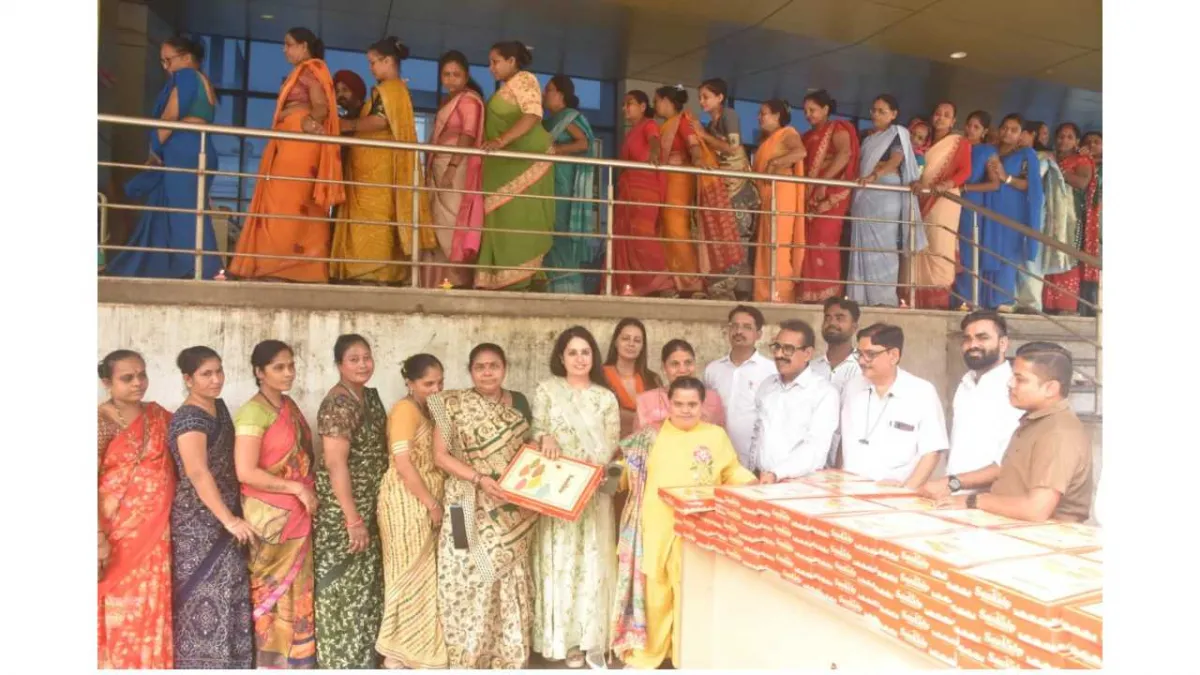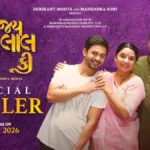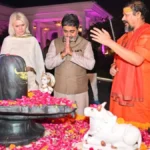In society, there are many people who do not receive family affection or the warmth of home during festivals like Diwali and Raksha Bandhan. For the past 12 years, Gujarat’s Deputy Chief Minister Harsh Sanghvi, his mother Devyaniben Sanghvi, and wife Heni Rameshchandra Sanghvi have been continuously working to bring light into the lives of such people.
As every year, this time too the Sanghvi family celebrated Diwali with patients and sanitation workers at Surat’s New Civil Hospital. On this occasion, embodying the spirit of “Service is the supreme duty,” sweets and lamps were distributed to the hospital patients.
Additionally, indigenous lamps made by mentally challenged children from Ahmedabad were gifted, which also strengthened the “Angdan Mahadan Janjagruti Abhiyan” campaign run by Dilipbhai Deshmukh Dada, founder of Angdan Charitable Trust.
During the event, it was stated that the service spirit shown by Civil Hospital during the difficult times of the pandemic is the highest example of humanity. It was mentioned that “When the entire world was in fear, the doctors, nurses, and staff of Civil Hospital served thousands of patients while staying away from their own families.”
On this occasion, several social workers and nursing students were present.
Diwali
Diwali, also known as the Festival of Lights, is a major religious and cultural celebration originating in India. Its history is rooted in Hindu mythology, primarily commemorating Lord Rama’s return to his kingdom after 14 years of exile. Today, it is celebrated by multiple faiths with lamps, fireworks, feasts, and family gatherings, symbolizing the victory of light over darkness and good over evil.
Raksha Bandhan
Raksha Bandhan is a traditional Hindu festival that celebrates the bond between brothers and sisters. It typically falls in the month of August and involves sisters tying a sacred thread, called a “rakhi,” around their brothers’ wrists as a symbol of love and protection. In return, brothers offer gifts and a lifelong vow to protect their sisters.
New Civil Hospital
The New Civil Hospital is a modern public healthcare facility, typically built to serve growing urban populations and provide advanced medical services. While specific founding dates vary by location, such institutions generally represent a city’s or region’s commitment to expanding accessible healthcare infrastructure in the 20th or 21st century. They are key centers for treatment, emergencies, and medical education in their communities.
Angdan Mahadan Janjagruti Abhiyan
I am unable to provide a summary for “Angdan Mahadan Janjagruti Abhiyan” as it does not appear to be a widely recognized historical place, cultural site, or a major, well-documented public movement. The name seems to reference a specific campaign or initiative, but there is insufficient verifiable information available in the public domain about its history or significance.
Angdan Charitable Trust
The Angdan Charitable Trust is a non-profit organization based in India, dedicated to social welfare and community development. Its history involves grassroots initiatives focused on areas such as education, healthcare, and women’s empowerment for underprivileged communities. The trust works to create sustainable change by providing essential resources and support to improve the quality of life for those in need.
Civil Hospital
Civil Hospital is a general term for public healthcare institutions that emerged during the British colonial era in South Asia, particularly in India and Pakistan. These hospitals were established to provide medical services to the civilian population and have a long history of serving the public. Today, they remain vital, often government-run, centers for healthcare and medical education in their respective regions.






